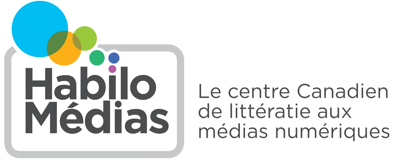Outcome Chart - Nunavut - Science Grade 7-9
Developing a Nature of Science Emphasis
Concepts
- The goal of science is knowledge about the natural world.
- Scientific knowledge develops through observation, experimentation, the discovery of patterns and relationships, and the proposal of explanations.
- Scientific knowledge results from the shared work of many people over time.
- Scientific knowledge is subject to change as new evidence is gathered and new interpretations of data are made.
- The process of scientific investigation includes: – clearly defining research questions or ideas to be tested – developing procedures for investigation – preparing accurate records of observations and measurements – evaluating ideas through critical examination of evidence.
- Scientific ideas are conceptual inventions that help organize, interpret and explain findings. − Models and theories are often used in interpreting and explaining observations, and in predicting future observations. − Conventions of nomenclature and notation provide a basis for organizing and communicating science knowledge; e.g., chemical symbols. − Scientific language is precise, and specific terms may be used in each field of study.
- Science cannot provide complete answers to all questions
Initiating and Planning; e.g.,
- identify questions to investigate
- define and delimit questions to facilitate investigation
- state a prediction and a hypothesis based on background information or an observed pattern of events
- select appropriate methods and tools for collecting data and information.
MediaSmarts Resources
Lessons
- Celebrities and World Issues
- Finding and Authenticating Online Information on Global Development Issues
- Hoax? Scholarly Research? Personal Opinion? You Decide!
- Online Gambling and Youth
Analyzing and Interpreting; e.g.,
- interpret patterns and trends in data, and infer and explain relationships among the variables
- predict the value of a variable by interpolating or extrapolating from graphical data
- identify and suggest explanations for discrepancies in data
- state a conclusion, based on experimental data, and explain how evidence gathered supports or refutes an initial idea.
MediaSmarts Resources
Lessons
Developing a Social and Environmental Emphasis
Concepts
- Science and technology are developed to meet human needs and expand human capability.
- Science and technology have contributed to human well-being and have influenced, and been influenced by, social development.
- Science and technology have both intended and unintended consequences for humans and the environment.
- Society provides direction for scientific and technological development. − Canadian society supports scientific research and technological development that helps achieve a sustainable society, economy and environment. − Decisions regarding scientific and technological development involve a variety of considerations, including social, environmental, ethical and economic considerations. − Society supports scientific and technological development by recognizing accomplishments, publishing and disseminating results, and providing financial support.
- Scientific and technological activity may arise from, and give rise to, such personal and social values as accuracy, honesty, perseverance, tolerance, open-mindedness, critical-mindedness, creativity and curiosity.
- Science and technology provide opportunities for a diversity of careers, for the pursuit of hobbies and interests, and for meeting personal needs.
Initiating and Planning; e.g.,
- identify science-related issues
- identify questions to investigate arising from science-related issues
- select appropriate methods and tools for collecting relevant data and information.
MediaSmarts Resources
Lessons
- Celebrities and World Issues
- Finding and Authenticating Online Information on Global Development Issues
- Hoax? Scholarly Research? Personal Opinion? You Decide!
- Online Gambling and Youth
Performing and Recording; e.g.,
- research information relevant to a given question, problem or issue
- identify information and data that are relevant to the issue
- select and integrate information from various print and electronic sources, or from several parts of the same source.
Analyzing and Interpreting; e.g.,
- apply given criteria for evaluating evidence and sources of information
- identify new questions and problems that arise from what was learned
- identify and evaluate potential applications of findings.
MediaSmarts Resources
Lessons
